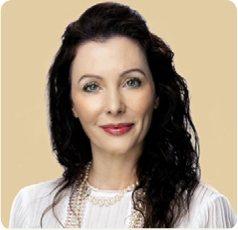

Eleven years ago, a handful of nurses gathered to create an association whose aim was to build a professional body. This group was to become the British Association of Cosmetic Nurses (BACN), which is now the biggest platform for nurses involved in non-surgical cosmetic treatments in the UK.
Before coming into the industry and becoming a member of the BACN, I was a surgical care practitioner/advanced nurse specialist in the cardiac-surgical field. My role involved tissue viability, tissue handling and conduit harvesting for coronary artery bypass graft surgery. It also entailed being a first or second assistant to a cardiac surgeon. Although the number of surgical assistants is growing and the role is expanding, we were not represented by a body equivalent to the BACN, and did not have all the support that such an organisation provides. However, this was offset by the fact that we all exercised our profession within a hospital environment and under the rules and regulation that came with it. In those circumstances, the need to belong to a professional organisation or association was less paramount. Yet, to this day, even with the NHS safety umbrella, professional concerns are raised regarding the needs for more regulation (BBC, 2012). When I joined the non-surgical cosmetic industry as a private nurse leading my own business, I immediately realised the need to be part of the BACN. In fact, I contacted the BACN and became a member before beginning to treat patients. As my colleague, Lisa Niemier, mentioned in her editorial in the previous issue of the Journal of Aesthetic Nursing, running a private aesthetic clinic can be a lonely business. Indeed, that was my initial personal experience—at times, I felt very isolated. However, before officially joining, the BACN provided me with guidance regarding all the necessary steps to be taken before starting my business.
A helping hand
Once I became a member of the BACN, I found the organisation to be a vibrant association whose aim was to assist and help its members in their clinical practice, as well as with all associated aspects, including ethical considerations and the day-to-day running of a business. Personally, I have benefitted from and enjoyed the assistance of the BACN, and it has enhanced the quality of my clinical practice. The BACN is a forum that responds to all individual needs, concerns and queries, with emphasis given to safety in practice, both for patients and nurses.
Widening horizons
It was a privilege to be made a board member of the BACN earlier this year. This new role has widened my horizons and offered me the opportunity to contribute to all aspects of the BACN's role, including writing specialist articles, presenting posters and discussing regulatory issues of the profession, as well as looking into the future direction and development of the sector. The latter aspects are something I wish to contribute to further. Indeed, more than ever, our profession is under scrutiny, not only by the general public, but also by the press. Although we have a well-established code of conduct, its implementation is not strictly adhered to by some practitioners. Furthermore, much has been said and written about the lack of implementation of the recommendations made by the Department of Health and Social Care and other governmental bodies. Surprisingly, the Government has been slow to respond. Paradoxically, it is the BACN, along with other organisations, that are pushing the Government to take measures towards a clearer legislation to protect both patients and the profession.
Continuing challenges and dilemmas
One of the most challenging matters that remains very controversial and unresolved is the issue of non-medical professionals performing medical prescription treatments and procedures. This is unlikely to change, at least in the near future, given the reluctancy of the Government to legislate. Perhaps a way forward would be to transform a voluntary register into a compulsory one, as in other disciplines. This would mean that only practitioners whose names are on the register are allowed to practice. Of course, this brings with it its own dilemma: who trains the trainers, and what criteria are to be used to decide who can be added to the registry? Additionally, which regulatory body should we be answerable to? Perhaps the solution would be to mimic the Scottish model, which requires by law all independent clinics to be registered with an independent regulator. There are so many questions and so many opinions on what is best, with different interests at the heart of many opinions. In the meantime, the BACN is at present focused on prescribing standards, and has written to the NMC in relation to this, as well as working on the forthcoming and much-needed Aesthetic Career Framework, which will outline the standards required to go from novice to competent, advanced and specialist aesthetic nurse. This will enable nurses to align themselves with the requirements needed to be able to advance their practice and be recognised formally as advanced and specialist nurses.


